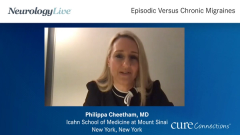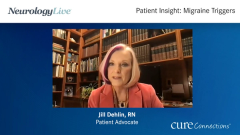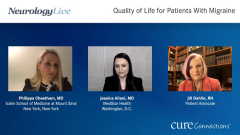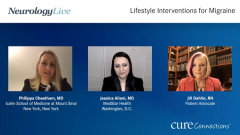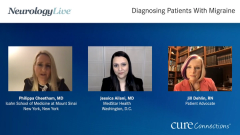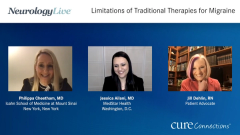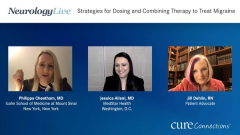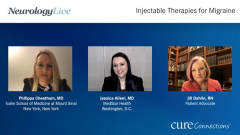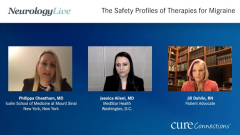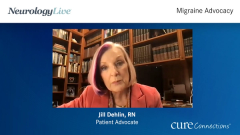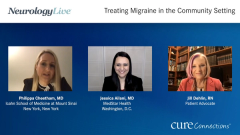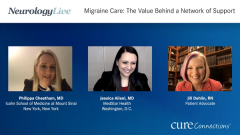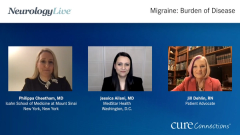
Migraine: Burden of Disease
Episodes in this series

Factors that differentiate migraine attacks from headaches and the impact of migraine attacks on patients’ lives.
Philippa Cheetham, MD: Hello, and thank you for joining this Neurology Live® Cure Connections® program titled, “The Migraine Patient Journey: Episodic Migraine and CGRP Inhibitors.” Migraine is a neurological disease that is associated with extensive disability and poor quality of life for people with migraine. Successful treatment often requires a multipronged, trial-and-error approach, and the quest for consistently safe and effective preventive therapies has remained elusive until relatively recently.
I am your host, Dr Philippa Cheetham, an attending physician at Mount Sinai in New York. I am joined by Dr Jessica Ailani, the director of the MedStar Georgetown Headache Center and a vice co-chair of strategic planning and a professor of clinical neurology at the MedStar Georgetown University Hospital in Washington, DC, and also Jill Dehlin, a registered nurse, a certified health education specialist, a patient advocate, and 1 of many people with migraine. Welcome, Dr Ailani and Ms Dehlin. It is wonderful to have you joining us. Thank you so much.
Jessica Ailani, MD: Thank you for having us.
Philippa Cheetham, MD: We are hearing many new things about migraine, but it is fascinating to look back at history and see that even the ancient Egyptians were writing about migraine all those years ago. Migraine was the description for hemicrania, half a brain, or half a head. Dr Ailani, why is it that we have known so long about this condition, yet there are still so many people suffering from migraine?
Jessica Ailani, MD: You bring up a great question. If I had the answer to that, I would be out of business. The brain has always been a mysterious thing in medicine. We used to think that humors are what controlled the body, and that the humors moving through the system are what caused any kind of movement. When they were misaligned, they gave us disease. For the longest time, migraines were linked very closely with hysteria and were seen as a women’s disorder. Many of us wonder if that is part of why it took so long for an understanding of this disease to really come about.
To this day, there are many dedicated scientists in this field, and we have been learning rapidly about what happens, but there is still a lot of mystery around how 1 step triggers another during a migraine attack. We understand that there are changes in the brain, and we understand that we have changes in our peripheral nervous system. What we can’t seem to really figure out is how 1 inherently causes the other, at what point 1 triggers the other, or if it is all happening at the same time. I believe it is very hard to study this in a human being. How do you open them up during a migraine attack and say, “Let me take a look inside that brain and see what’s firing at this moment?” It makes it a very difficult thing to study.
Philippa Cheetham, MD: I will be very interested to get Jill’s thoughts on this, but in the last 10 years, I have become a very severe migraine sufferer myself. I am embarrassed to say that, prior to experiencing migraines, when patients came in and said they were migraine sufferers or had friends and family members with migraine, I do not think I and other people truly understood or had any idea how different a migraine is to a tension headache or a stress headache. We are not just talking about a bad headache here are we, Jill?
Jill Dehlin, RN: We are not. It is really debilitating. What is tricky is that it is on a spectrum. One day an individual may have a really severe attack, then another day they may have a very mild attack where they are able to push through. Our loved ones see that, and they think, “Well, she was able to come to work the last time she had a migraine—what’s up?”
Philippa Cheetham, MD: Thank you for watching Neurology Live® Cure Connections®. If you enjoyed the program, please subscribe to our e-newsletter to receive upcoming programs and other great content right in your in-box. Thank you so much.
Transcript Edited for Clarity
Newsletter
Keep your finger on the pulse of neurology—subscribe to NeurologyLive for expert interviews, new data, and breakthrough treatment updates.

